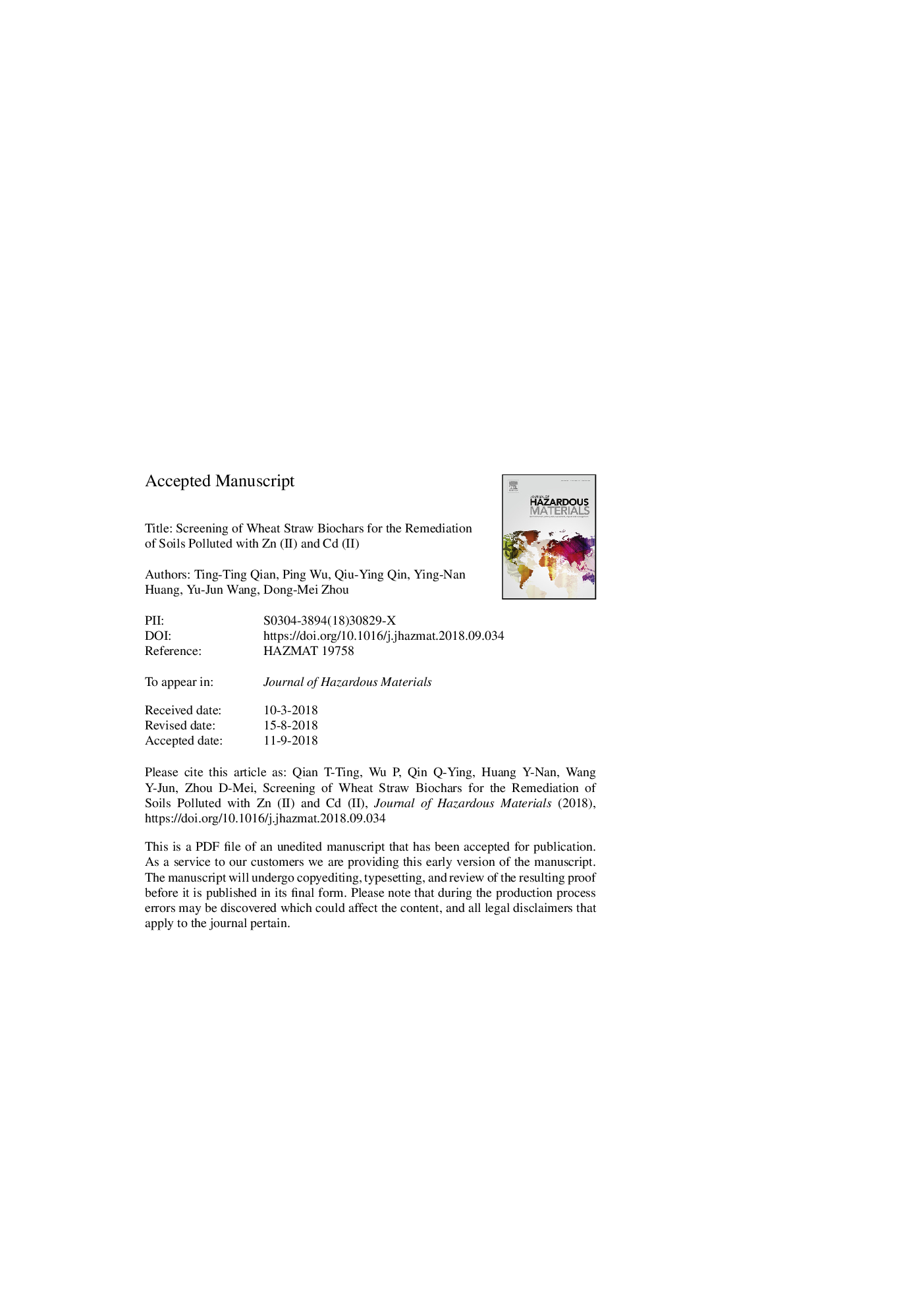| Article ID | Journal | Published Year | Pages | File Type |
|---|---|---|---|---|
| 10151703 | Journal of Hazardous Materials | 2019 | 29 Pages |
Abstract
The immobilization behaviors of Zn(II) and Cd(II) by wheat straw (WS) biochars could vary with the soil conditions. In the acidic environment, WS biochars produced at low temperature were more competent than those produced at high temperature on Zn(II) and Cd(II) immobilization; while WS biochars produced at high temperature were more effective than those produced at low temperature in the alkaline environment. The ions in the porewater could compromise the sorption capacities of Zn(II) and Cd(II) by WS biochars in acidic soils, while could enhance them in alkaline soils. For biochars produced at the same temperature, residence time had little effect on their behaviors of Zn(II) and Cd(II) immobilization. Only a small portion of immobilized Zn(II)/Cd(II) could be released from WS biochar in the simulated acid rain. Compared with Zn(II)/Cd(II) adsorbed on the acidic functional groups, Zn(II)/Cd(II) precipitates were more stable in 0.01âM CaCl2 solution. Most of the Zn(II) and Cd(II) species on biochar could be released in 1âmM citric acid solution. The immobilized Zn(II) and Cd(II) on WS biochar are likely to be released into the soil environment in the long run.
Keywords
Related Topics
Physical Sciences and Engineering
Chemical Engineering
Chemical Health and Safety
Authors
Ting-Ting Qian, Ping Wu, Qiu-Ying Qin, Ying-Nan Huang, Yu-Jun Wang, Dong-Mei Zhou,
